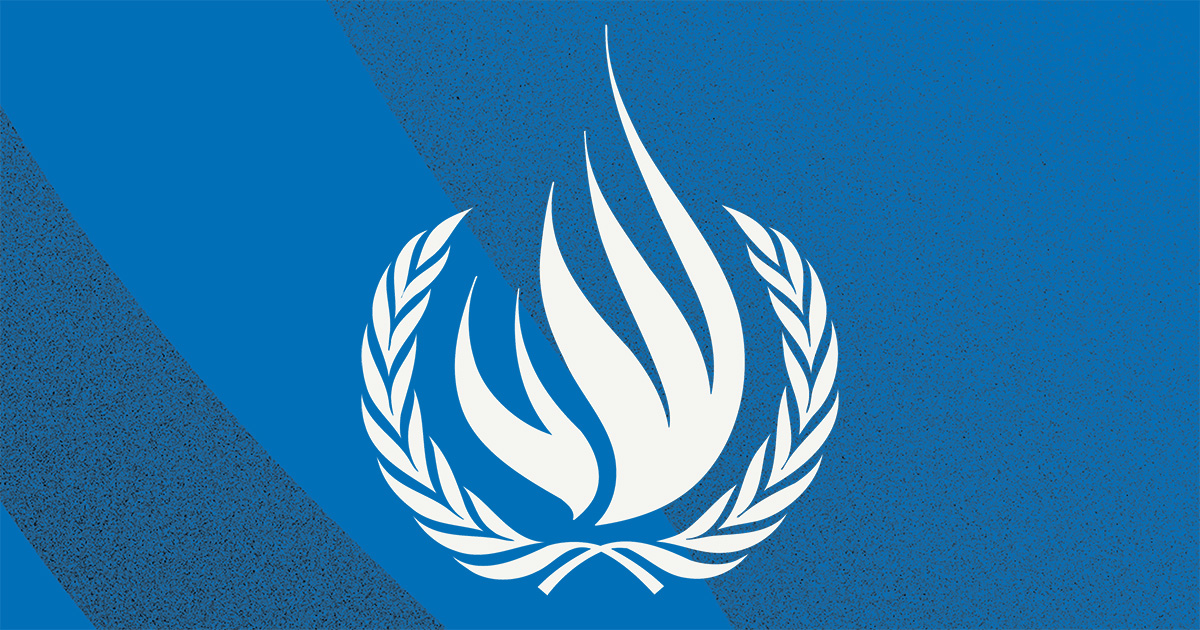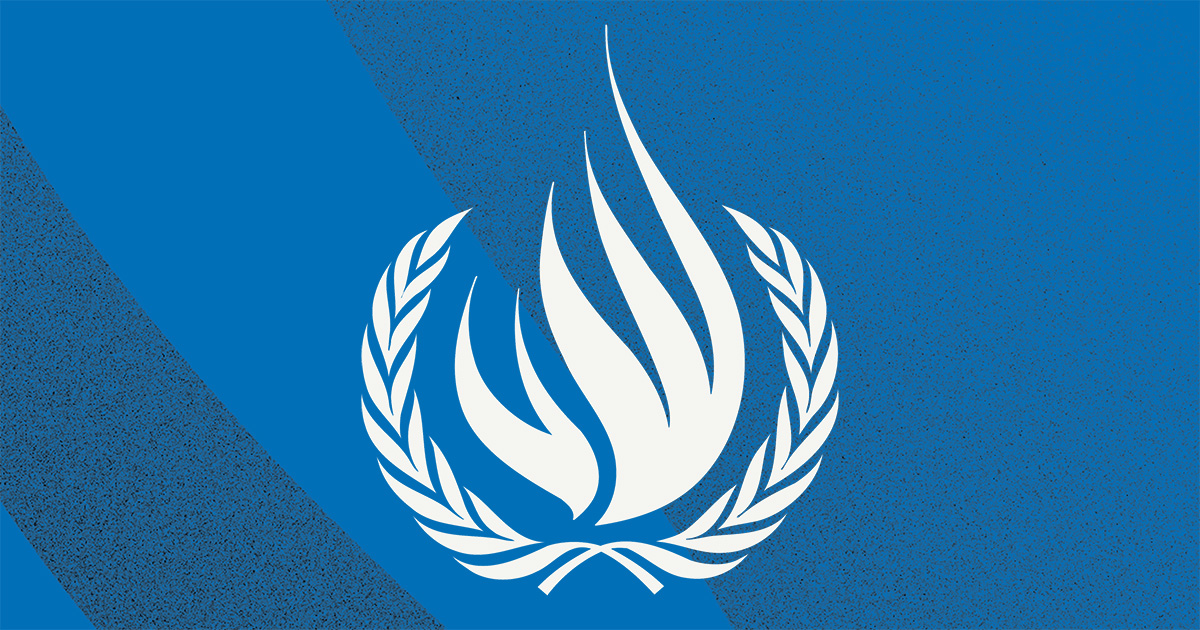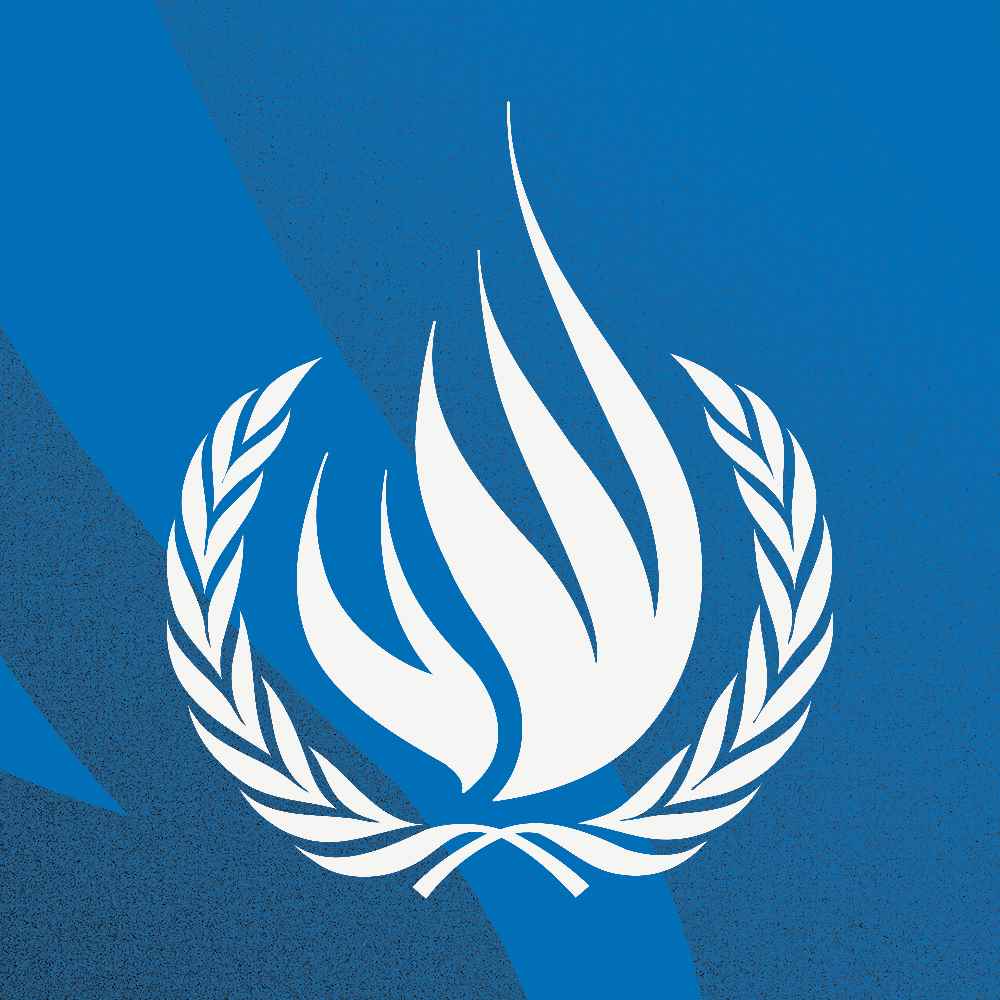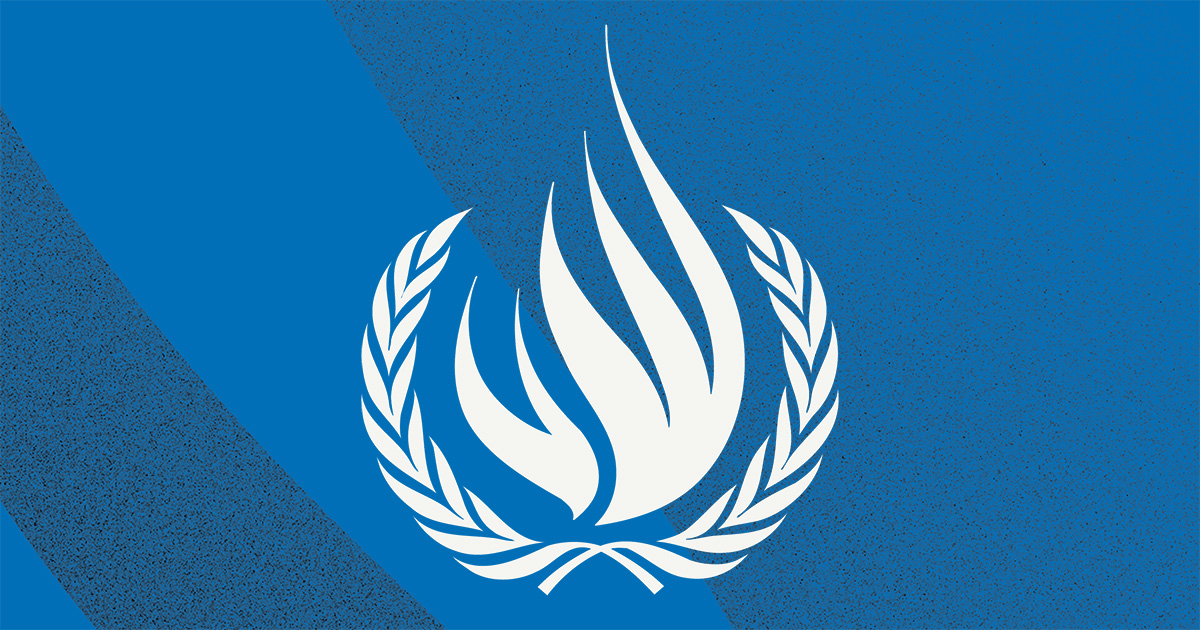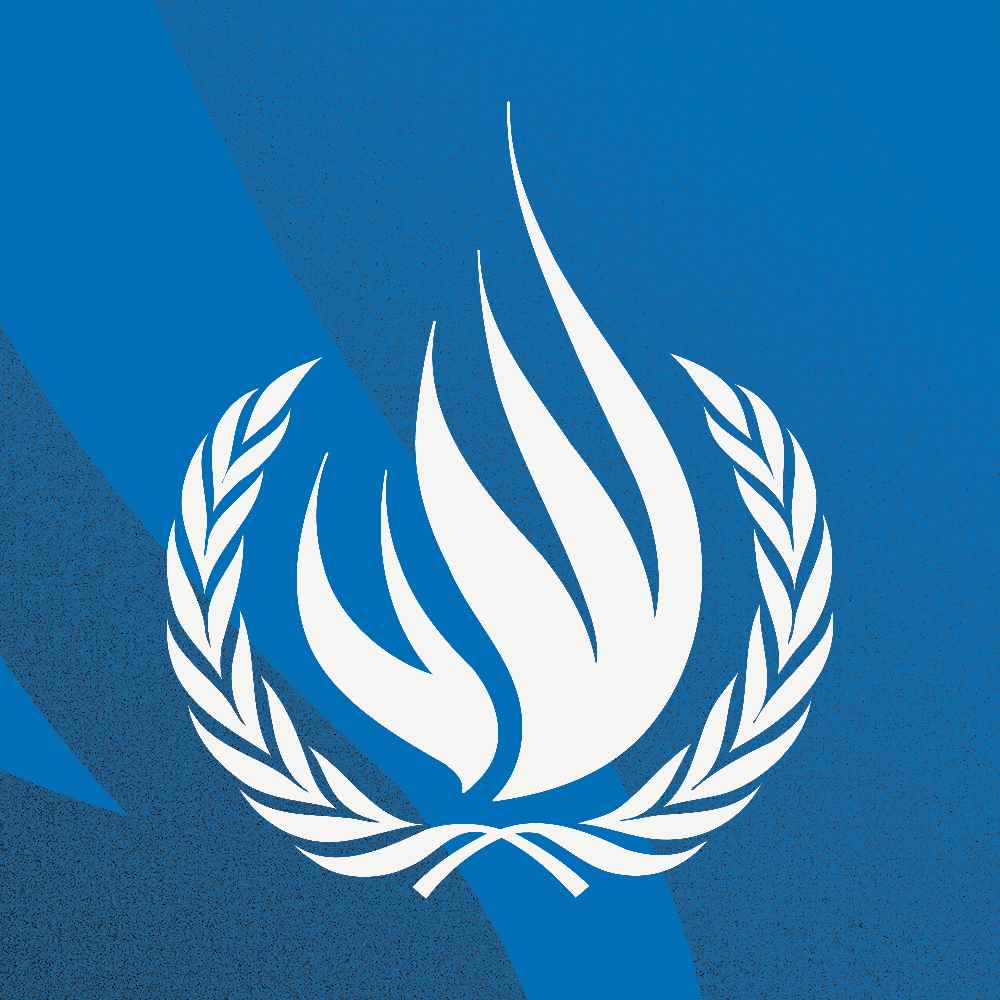
MORNING 4 April 2023
The Human Rights Council this morning adopted eight resolutions, extending mandates on the sale and sexual exploitation of children, Iran, Democratic People’s Republic of Korea, Belarus, and Syria.
Other resolutions adopted concerned thehuman right to a clean, healthy and sustainable environment; the contribution of the Human Rights Council with regard to the human rights implications of drug policy; and birth registration and the right of everyone to recognition everywhere as a person before the law.
On the mandate of the Special Rapporteur on the sale, sexual exploitation and sexual abuse of children, the Council adopted a resolution without a vote and as orally revised in which it decided to extend the mandate of the Special Rapporteur, for a period of three years, under the title of the Special Rapporteur on the sale, sexual exploitation and sexual abuse of children, on the same terms provided by the Human Rights Council.
Concerning the situation of human rights in the Islamic Republic of Iran, the Council adopted a resolution by a vote of 23 in favour, 8 against and 16 abstentions in which it decided to extend the mandate of the Special Rapporteur on the situation of human rights in the Islamic Republic of Iran for a further period of one year.
With regard to the situation of human rights in the Democratic People’s Republic of Korea, the Council adopted a resolution without a vote in which it decided to continue to strengthen, for a period of two years, the capacity of the Office of the High Commissioner to allow the implementation of relevant recommendations made by the group of independent experts on accountability in its report. It also decided to extend the mandate of Special Rapporteur on the situation of human rights in the Democratic People’s Republic of Korea, in accordance with Human Rights Council resolution 37/28, for a period of one year.
As for the situation of human rights in Belarus in the run-up to the 2020 presidential election and in its aftermath, the Council adopted a resolution by a vote of 21 in favour, 5 against and 21 abstentions in which it decided to extend, for a period of one year, the mandate of the High Commissioner for Human Rights, with the assistance of the three appointed independent experts and special procedure mandate holders, until the fifty-fifth session of the Council.
Concerning the situation of human rights in the Syrian Arab Republic, the Council adopted a resolution by a vote of 26 in favour, 5 against and 16 abstentions in which it decided to extend the mandate of the Commission of Inquiry on the Syrian Arab Republic for a period of one year.
On thehuman right to a clean, healthy and sustainable environment, the Council adopted a resolution without a vote in which it requested the Special Rapporteur on the issue of human rights obligations relating to the enjoyment of a safe, clean, healthy and sustainable environment to convene, before the end of 2023, a one-day expert seminar on the responsibility of business enterprises to respect the human right to a clean, healthy and sustainable environment.
Concerning the contribution of the Human Rights Council with regard to the human rights implications of drug policy, the Counciladopted a resolution without a vote and as orally revised in which it requested the Office of the High Commissioner to prepare a report, in collaboration with the United Nations Office on Drugs and Crime and in consultation with relevant stakeholders, on human rights challenges in addressing and countering all aspects of the world drug problem, and to present it to the Council at its fifty-fourth session.
As for birth registration and the right of everyone to recognition everywhere as a person before the law, the Council adopted a resolution without a vote and as orally revised in which it requested the High Commissioner to prepare, in consultation with relevant stakeholders, a comprehensive study on the use of digital technologies to achieve universal birth registration, and to submit the report to the Human Rights Council at its fifty-eighth session.
The webcast of the Human Rights Council meetings can be found here. All meeting summaries can be found here. Documents and reports related to the Human Rights Council’s fifty-second regular session can be found here.
The Council will resume its work at 2 p.m. to continue to take action on draft resolutions before closing its regular fifty-second session.
Action on Resolutions Under Agenda Item Three on the Promotion and Protection of All Human Rights, Civil, Political, Economic, Social and Cultural Rights, including the Right to Development
In a resolution (A/HRC/51/L.7) on the Human right to a clean, healthy and sustainable environment, adopted without a vote, the Council calls upon States to respect, protect and fulfil human rights, including the rights to life and to the enjoyment of the highest attainable standard of physical and mental health, to a clean, healthy and sustainable environment, to an adequate standard of living, to adequate food, to safe drinking water and sanitation, and to housing and cultural rights; requests the Special Rapporteur on the issue of human rights obligations relating to the enjoyment of a safe, clean, healthy and sustainable environment to convene, before the end of 2023, a one-day expert seminar on the responsibility of business enterprises to respect the human right to a clean, healthy and sustainable environment, and to submit to the Council, at its fifty-fifth session, a summary report on the seminar for consideration of further follow-up action; and decides to remain seized of the matter.
Before adopting the resolution, the Council voted on and rejected amendment L.64.
In a resolution (A/HRC/51/L.22/Rev.1) on the Contribution of the Human Rights Council with regard to the human rights implications of drug policyadopted without a vote (as orally revised and as per amendments L.58 and L.59), the Council calls upon all States Members of the United Nations to consider alternatives to incarceration, conviction and punishment, where appropriate and in accordance with the three international drug control conventions; requests the Office of the High Commissioner to prepare a report, in collaboration with the United Nations Office on Drugs and Crime and in consultation with relevant stakeholders, on human rights challenges in addressing and countering all aspects of the world drug problem, and to present it to the Council at its fifty-fourth session, also in an accessible format, and also requests the Office of the High Commissioner to share the report with the Commission on Narcotic Drugs through the appropriate channels; and decides to convene an intersessional panel discussion before its fifty-fifth session, in an accessible format, on human rights challenges in addressing and countering all aspects of the world drug problem, to have a constructive and inclusive dialogue on this issue with relevant stakeholders, and requests the Office of the High Commissioner to prepare a report, in consultation with the United Nations Office on Drugs and Crime, on the panel discussion in the form of a summary.
Before adopting the resolution, the Council voted on nine proposed amendments. It rejected L.47, L.48, L.50, L.51, L.53, L.60, L.61. It adopted amendment L.58 by a vote of 22 in favour, 20 against, and 5 abstentions. It also adopted amendment L.59 by a vote of 25 in favour, 18 against, and 9 abstentions.
In a resolution (A/HRC/51/L.23) on Birth registration and the right of everyone to recognition everywhere as a person before the law, adopted without a vote (as orally revised), the Council calls upon States to identify and reform laws and policies in order to enable immediate birth registration for all and to prevent all forms of discrimination against women and children in accessing birth registration; requests the High Commissioner to prepare, in consultation with relevant stakeholders, a comprehensive study on the use of digital technologies to achieve universal birth registration, and to submit the report to the Human Rights Council at its fifty-eighth session; and decides to consider this issue, in accordance with its programme of work, at its sixty-first session.
In a resolution (A/HRC/51/L.40) on the Mandate of the Special Rapporteur on the sale, sexual exploitation and sexual abuse of children, adopted without a vote (as orally revised), the Council decides to extend the mandate of the Special Rapporteur, for a period of three years, under the title of the Special Rapporteur on the sale, sexual exploitation and sexual abuse of children, on the same terms provided by the Human Rights Council in its resolutions 7/13, 34/16 and 43/22; requests the Special Rapporteur to support States in developing legal and policy frameworks and child protection strategies to effectively prevent and eradicate new and emerging forms of the online and offline sale and sexual exploitation and abuse of children, in accordance with international human rights law; also requests the Special Rapporteur to continue to report annually on the implementation of the mandate to the Council and the General Assembly, in accordance with their respective programmes of work; and decides to continue its consideration of this question in accordance with its programme of work.
Action on Resolutions Under Agenda Item Four on Human Rights Situations that Require the Council’s Attention
In a resolution (A/HRC/51/L.3) on the Situation of human rights in the Islamic Republic of Iran, adopted by a vote of 23 in favour, 8 against and 16 abstentions, the Council strongly deplores the widespread, repeated and persistent violations of human rights in the Islamic Republic of Iran and calls upon the Islamic Republic of Iran to address these violations as well as systematic impunity; decides to extend the mandate of the Special Rapporteur on the situation of human rights in the Islamic Republic of Iran for a further period of one year; requests the Special Rapporteur to submit a report on the implementation of the mandate to the Council at its fifty-fifth session and to the General Assembly at its seventy-eighth session; and requests the Secretary-General to provide the Special Rapporteur with the resources necessary to fulfil the mandate.
The results of the vote were as follows:
In favour (23): Argentina, Belgium, Benin, Chile, Costa Rica, Czechia, Finland, France, Germany, Honduras, Lithuania, Luxembourg, Malawi, Maldives, Mexico, Montenegro, Morocco, Paraguay, Romania, Somalia, Ukraine, United Kingdom and United States.
Against (8): Bangladesh, Bolivia, China, Cuba, Eritrea, Kazakhstan, Pakistan and Viet Nam.
Abstentions (16): Algeria, Cameroon, Cote d’Ivoire, Gabon, Gambia, Georgia, India, Kyrgyzstan, Malaysia, Nepal, Qatar, Senegal, South Africa, Sudan, United Arab Emirates and Uzbekistan.
In a resolution (A/HRC/51/L.9) on the Situation of human rights in the Democratic People’s Republic of Korea, adopted without a vote, the Council urges the Government of the Democratic People’s Republic of Korea to acknowledge its crimes, abuses and human rights violations and to take immediately all steps necessary to end them; decides to continue to strengthen, for a period of two years, the capacity of the Office of the High Commissioner to allow the implementation of relevant recommendations made by the group of independent experts on accountability in its report; requests the High Commissioner to provide an oral update on the progress made in this regard to the Council at its fifty-fifth session, and to submit a full report on the implementation of the recommendations to the Council at its fifty-eighth session; decides to extend the mandate of Special Rapporteur on the situation of human rights in the Democratic People’s Republic of Korea, in accordance with Human Rights Council resolution 37/28, for a period of one year; and decides to transmit all reports of the Special Rapporteur to all relevant bodies of the United Nations and to the Secretary-General for appropriate action.
In a resolution (A/HRC/51/L.14) on the Situation of human rights in Belarus in the run-up to the 2020 presidential election and in its aftermath, adopted by a vote of 21 in favour, 5 against and 21 abstentions, the Council strongly urges the Belarusian authorities to cooperate fully with the Special Rapporteur on the situation of human rights in Belarus, in particular by granting her free, full and unhindered access to the territory of the country, including unhindered access to all places of detention, to extend full cooperation to the thematic special procedures of the Council and to the treaty bodies, to restore their cooperation with and extend full and unhindered access to the Office of the High Commissioner for Human Rights, and to implement the recommendations contained in the report of the Office of the High Commissioner; decides to extend, for a period of one year, the mandate of the High Commissioner for Human Rights, with the assistance of the three appointed independent experts and special procedure mandate holders, until the fifty-fifth session of the Council; and requests the High Commissioner to present an interim oral update to the Council at its fifty-fourth session, and a comprehensive report at its fifty-fifth session, both to be followed by an interactive dialogue.
The results of the vote were as follows:
In favour (21): Argentina, Belgium, Benin, Chile, Costa Rica, Czechia, Finland, France, Gambia, Germany, Honduras, Lithuania, Luxembourg, Malawi, Mexico, Montenegro, Paraguay, Romania, Ukraine, United Kingdom and United States.
Against (5): Bolivia, China, Cuba, Eritrea and Viet Nam.
Abstentions (21): Algeria, Bangladesh, Cameroon, Cote d’Ivoire, Gabon, Georgia, India, Kazakhstan, Kyrgyzstan, Malaysia, Maldives, Morocco, Nepal, Pakistan, Qatar, Senegal, Somalia, South Africa, Sudan, United Arab Emirates and Uzbekistan.
In a resolution (A/HRC/51/L.16) on the Situation of human rights in the Syrian Arab Republic, adopted by a vote of 26 in favour, 5 against and 16 abstentions, the Council calls upon all parties, in particular the Syrian authorities, to maintain rapid, unhindered, safe and sustainable humanitarian access and to ensure that humanitarian assistance reaches its intended recipients; strongly reiterates the call of the Special Envoy of the Secretary-General for Syria for a complete, immediate and nationwide ceasefire throughout the Syrian Arab Republic; decides to extend the mandate of the Commission of Inquiry on the Syrian Arab Republic for a period of one year; requests the Commission of Inquiry to present an oral update to the Council during an interactive dialogue at its fifty-third session and to present an updated report during an interactive dialogue at both the fifty-fourth and fifty-fifth sessions of the Council; and decides to remain seized of the matter.
The results of the vote were as follows:
In favour (26): Argentina, Belgium, Benin, Chile, Costa Rica, Cote d’Ivoire, Czechia, Finland, France, Gabon, Gambia, Georgia, Germany, Honduras, Lithuania, Luxembourg, Malawi, Mexico, Montenegro, Morocco, Paraguay, Qatar, Romania, Ukraine, United Kingdom and United States.
Against (5): Algeria, Bolivia, China, Cuba and Eritrea.
Abstentions (16): Bangladesh, Cameroon, India, Kazakhstan, Kyrgyzstan, Malaysia, Maldives, Nepal, Pakistan, Senegal, Somalia, South Africa, Sudan, United Arab Emirates, Uzbekistan and Viet Nam.
Produced by the United Nations Information Service in Geneva for use of the information media; not an official record.
English and French versions of our releases are different as they are the product of two separate coverage teams that work independently.







